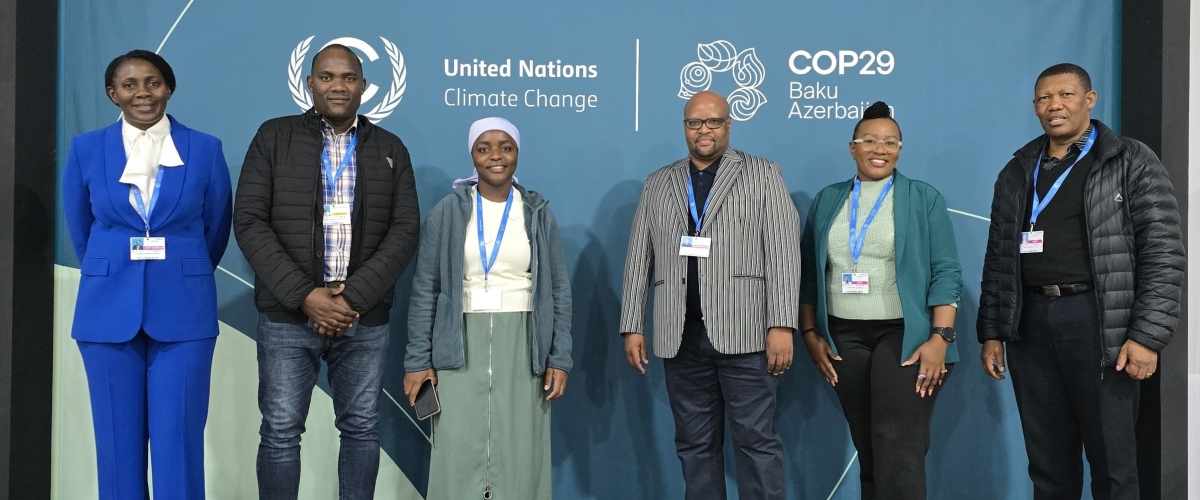
The 29th United Nations Climate Change Conference (COP29), held in Baku, Azerbaijan, under the theme "In Solidarity for a Green World," has been a rallying point for global voices addressing the pressing challenges of climate change. As one of the most affected continents, Africa took center stage with its call for urgent action, equitable solutions, and transformative policies to combat the climate crisis.
A significant highlight of COP29 was the launch of the Global Carbon Market Framework, a system allowing countries to trade U.N.-backed carbon credits. This initiative promises to unlock billions in climate finance, creating opportunities for SADC member states to invest in renewable energy, reforestation, and sustainable farming.
“This framework could be a game-changer for the SADC region," remarked a delegate from CCARDESA. "By turning climate action into economic opportunity, it has the potential to generate jobs, strengthen local economies, and build energy security while paving the way for a greener future.”
However, concerns about equitable access to these markets were raised. "Smallholder farmers face barriers like high entry costs and complicated certification processes," noted a civil society representative. "We must ensure these systems do not disadvantage the very people who need them most."
At the Africa Day High-Level Side Event, H.E. Ambassador Josefa Sacko, Commissioner of the African Union Commission, delivered a compelling call to action. "Africa contributes minimally to global greenhouse gas emissions but suffers disproportionately from its effects," she stressed. Sacko called for scaled-up financing for climate adaptation, loss and damage, and disaster risk reduction while advocating for Africa’s common position on global climate commitments.
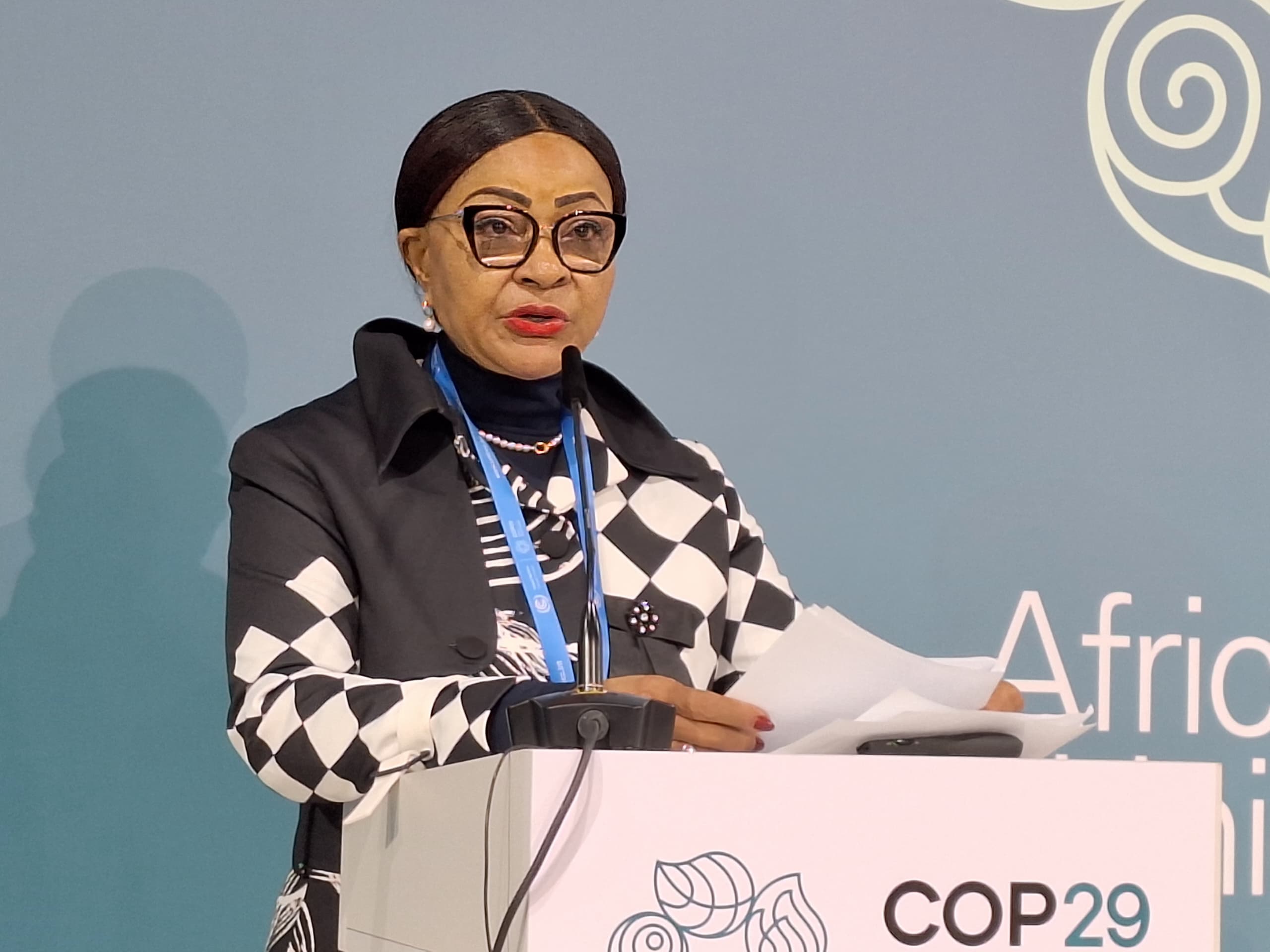
Women and youth were at the heart of discussions, with Ms. Nisreen Elsaim, a prominent United Nations youth activist, delivering a powerful message. "Women are often the most vulnerable to climate change," she said. Imagine a flood arriving as a woman goes into labor. Should she postpone her labor? This stark reality underlines the urgency of climate justice."
The youth voice of Gcina Dalmini amplified the call for inclusive solutions. "We must act now to protect Mother Nature for the next generation," declared a young climate advocate. "Systems of oppression continue to perpetuate inequality and environmental degradation. It’s time to challenge the status quo and drive meaningful change."
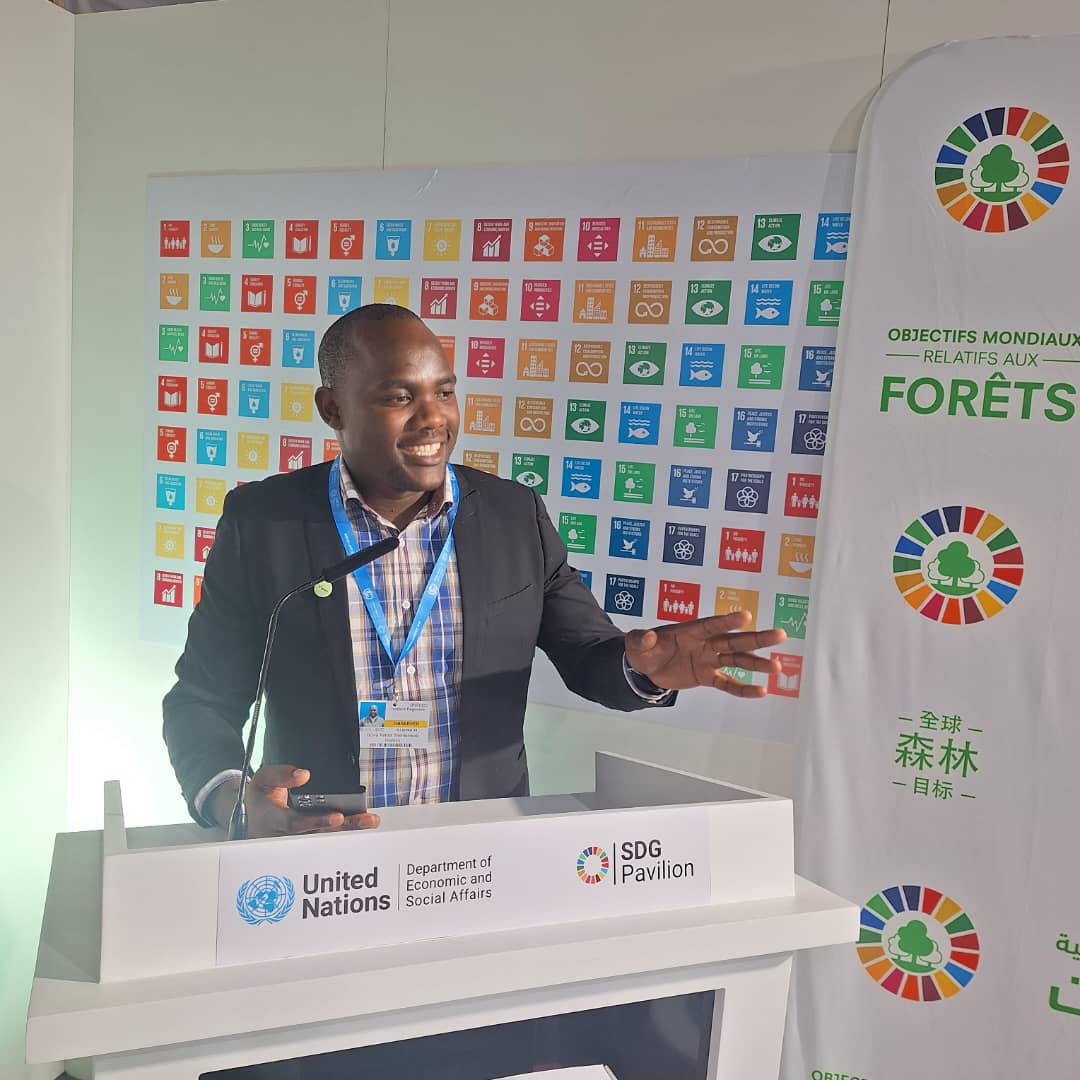
As part of its bold Mission 300 initiative, the World Bank aims to connect 300 million Africans to electricity by 2030. "600 million people in Africa still lack electricity. In the same vein, Mr Max Muyemburuko, representing Namibia's Star Climate Change and Environmental Association, advocated for a "leave the oil in the soil" policy to transition Africa to sustainable energy solutions. " Muyemburuko emphasized. "We must prioritize clean and renewable energy to power our future."
At a Nordic Side Event, Dr. Covic Namukolo, an EAT Lancet 2.0 Commissioner, highlighted the critical link between food systems and sustainability. "Healthy diets must encompass justice and sustainability at every stage, from production to consumption," she explained. "We must dispel the myth that everything labelled 'green' is automatically healthy."
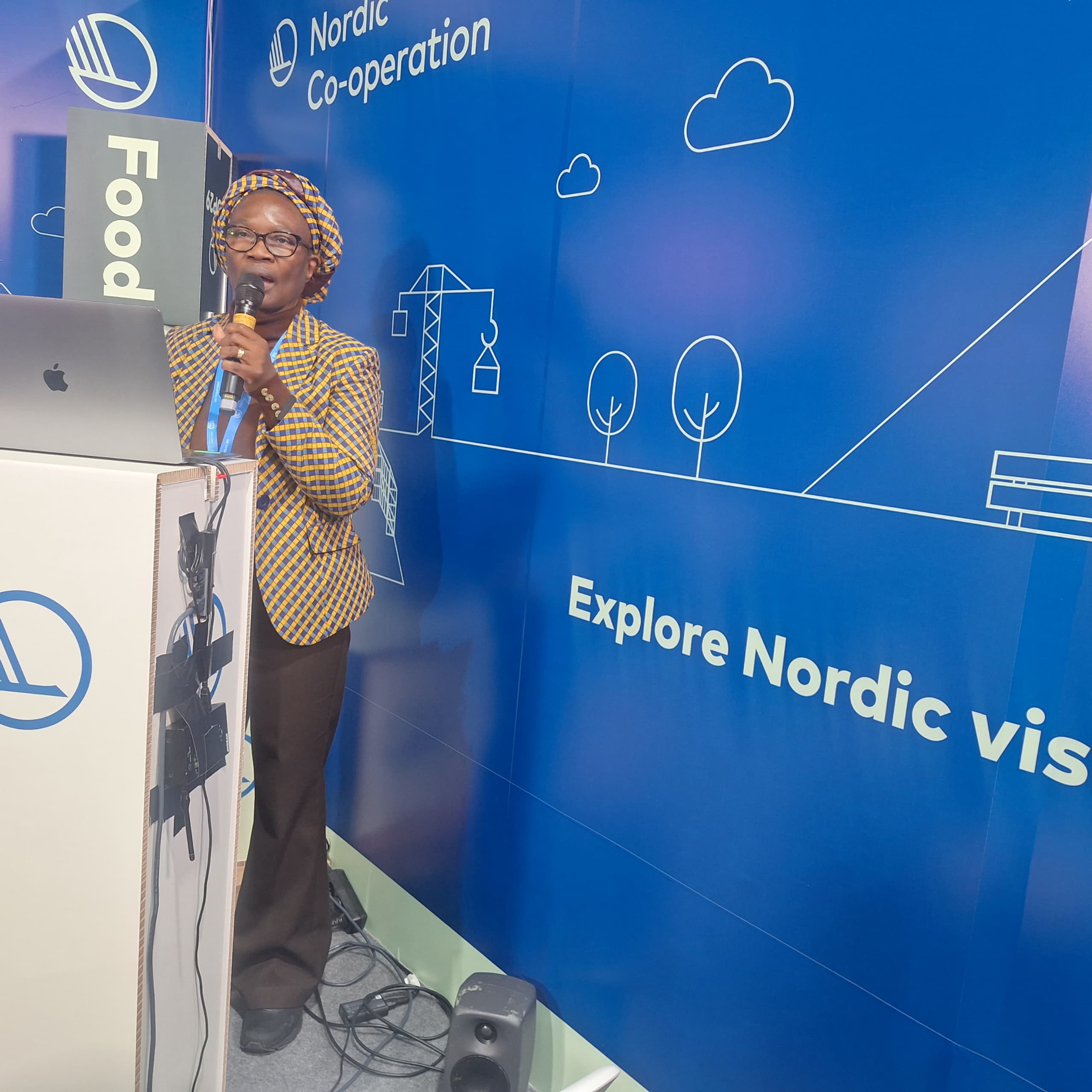
Dr. Lydia Dean Pilcher, a renowned Film producer from the University of Colombia, shared how Film and storytelling can change the narrative in combating climate change. "Climate change stories and films are powerful tools at COP, conveying urgency and humanizing impacts on vulnerable communities. They evoke emotions, inspire action, and highlight shared responsibilities among individuals, corporations, and governments. By simplifying complex issues and showcasing solutions, storytelling drives meaningful momentum for societal change."
Ms. Chimwemwe Ndhlovu from CARITAS Malawi highlighted the diverse losses and damages caused by Cyclone Freddy, including non-economic impacts on marginalized groups, especially women. She emphasized the effectiveness of holistic support packages and the vital role of subnational leadership in addressing loss and damage. She also noted the importance of initiatives like the SG-funded C40 Cities project, tackling urban loss and damage and climate migration through localized action.
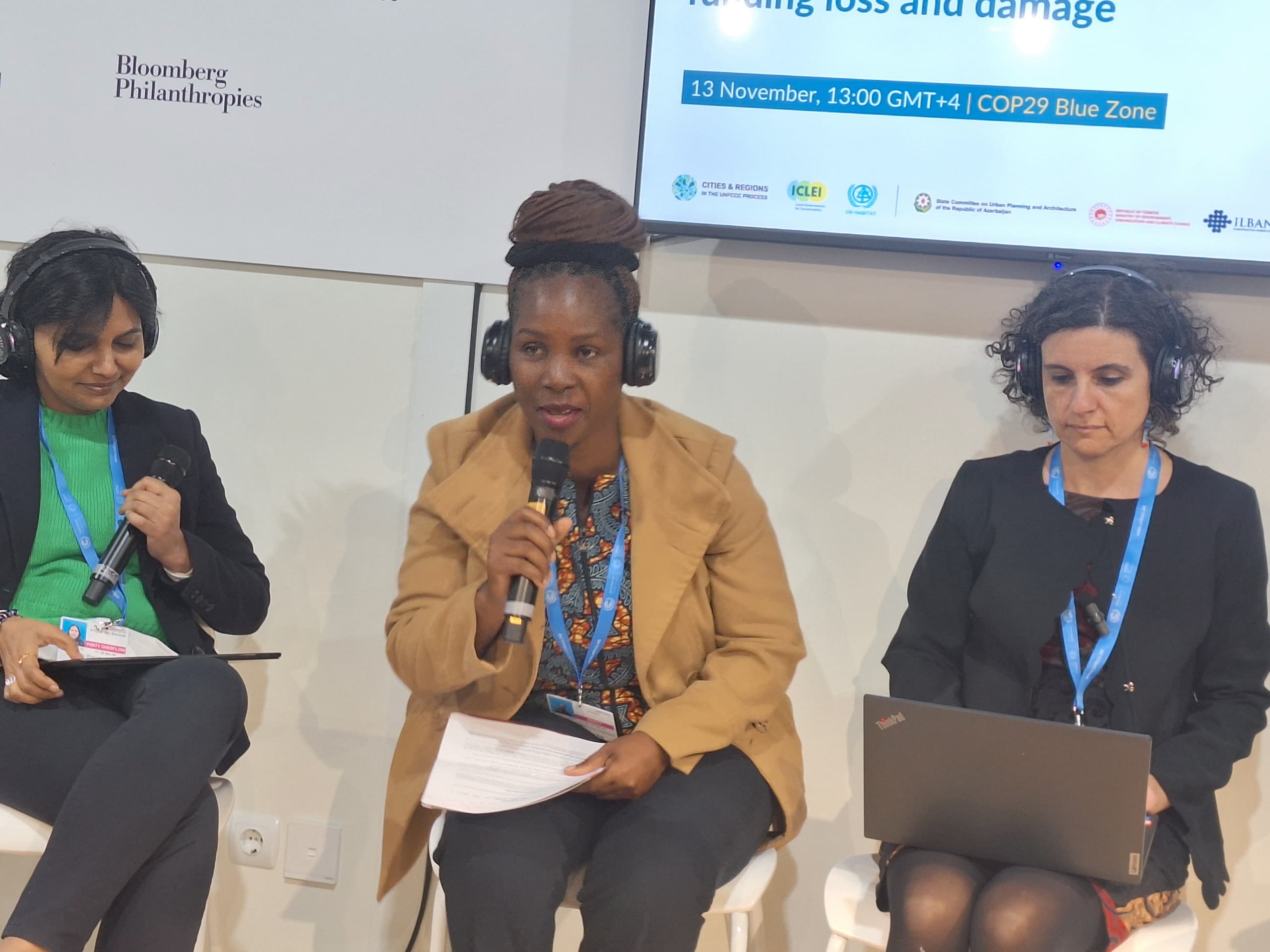
As COP29 draws to a close, the voices echoing through Baku share a common hope: solidarity, commitment, and action will turn challenges into opportunities. The aspirations are clear, from carbon markets to renewable energy, food systems, and inclusive policies. "We leave Baku with hope," said Mr Suwilanji Sinyangwe from Zambia. "Hope that the promises made here will translate into tangible change for the people of Africa and beyond. Hope that the next generation will inherit a greener, fairer, and more just world."
The call from COP29 is resounding: It’s time for bold action, global collaboration, and an unwavering commitment to safeguarding our planet and empowering communities for a sustainable future.
CCARDESA was represented by the CCARDESA Vice Board Chair from Lesotho, CCARDESA Executive Director Prof. Cliff Dlamini, Dr. Baitsi Podisi, and Mrs. Bridget Kakuwa-Kasongamulilo. Member States participants supported by CCARDESA included Mr. Sydney Simelane and Gcina Dlamini from Eswatini and Mrs. Memory Mahofah from Zimbabwe. The CCARDESA support came through the CAADP-XP4 Programme funded by the European Union and administered through the International Fund for Agricultural Development (IFAD).





